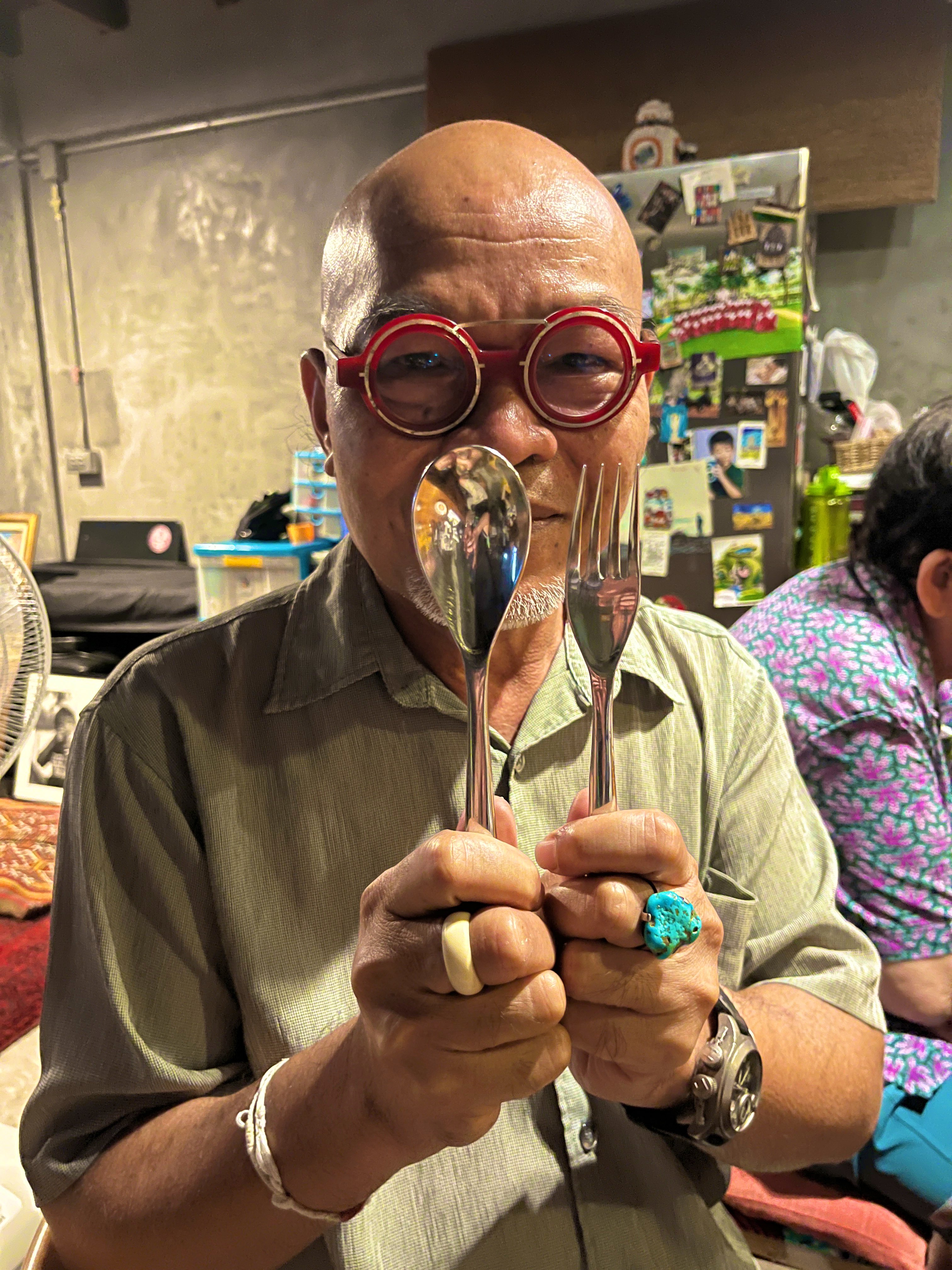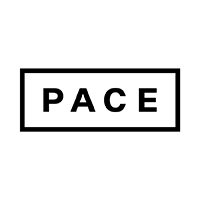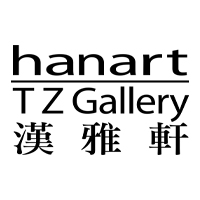Thanom Chapakdee (1958–2022)
By Pamela Wong

Portrait of THANOM CHAPAKDEE. Image via Twitter.
Thai artist, activist, critic, and lecturer Thanom Chapakdee passed away on June 27 at his house in Sisaket. He was hospitalized in mid-June due to stroke-induced complications and infections. Thanom was 64 years old.
Of Laotian heritage, Thanom was born during the Cold War in 1958 and raised in Sisaket, northeastern Thailand. After graduating with a bachelor’s degree from the Srinakharinwirot University, he pursued his master’s at the University of Kent’s Institute of Art and Design in Canterbury, and, following his return to Thailand, obtained a PhD in art criticism from Chulalongkorn University’s Faculty of Fine and Applied Arts. Well known as an arts lecturer of Srinakharinwirot University, Thanom dedicated years to cultivating his studies of art criticism, theory, and art activism.
Thanom first worked in print media and published extensively on a range of disciplines from 1977 to 2007, including contemporary art, activism, music, and performance. A sharp and outspoken critic, his views have also been published in numerous Thai magazines, such as the Nation Weekend Magazine and The Isaan Record, for more than three decades.
Thanom actively employed an “aesthetics of resistance” and practiced his beliefs in “people power.” He once explained in an interview with The Isaan Record, “For me, art should be approachable for ordinary people and it should raise questions about society, the world, and politics. Art and democracy are very much related, because the space to express ourselves is the space of freedom. If there is no democracy or freedom, there is no artistic expression, because art is a result of the human gut bringing out the deepest emotions that cannot be communicated through words.”
Following Prayut Chan-o-cha’s military coup in 2014, which imposed censorship on artistic expressions and banned political activity, Thanom initiated and participated in a series of protests and projects on the streets, including demanding temporary bail for arrested young people and political activists in front of the Supreme Court.
The artist was also involved with a number of collectives and festivals. In 1995, he co-founded the performance art group U-Kabat with artist Vasan Sitthiket to practice art activism. He was the co-organizer of Asiatopia, a performance art festival in Thailand, which has featured more than 400 international artists since its first edition in 1998. In 2015, he served on the Southeast Asia Cultural Committee to the Ministry of Culture, Taiwan, and in 2019, joined the Biennale Jogja in Yogyakarta, where he participated in a panel discussion with artists Moelyono and Tran Luong.
In 2018, Thanom retired from his position at the Srinakharinwirot University, returned to his hometown, and established Khon Kaen Manifesto, a 20-day biennial that attempts to “decentralize Thai contemporary art.” In order to do so, he invited artists who were rejected by the Bangkok Art Biennale and Thailand Biennale to join the Manifesto. Thanom explained, “We brought in different narratives, the genius loci, socio-anthropology and cultural activities as art. The Northeastern and deep Southern provinces are usually not the places where contemporary art happen and we want to change that.” The Manifesto’s 2020 edition, on themes of dignity and gender equality, was shortened to ten days and held at an old brothel and other buildings. Thanom was planning to expand the festival by organizing its upcoming 2022 edition in Sisaket, Surin, and Siem Reap.
Thanom co-founded The Manifesto by MAIELIE, an independent art space in Khon Kaen that doubles as an offshoot branch of MAIIAM Contemporary Art Museum in Chiang Mai, in 2019. Through the space, Thanom hoped to showcase more independent artworks from Isaan, Thailand’s northeastern region: “Artists, activists and other local people can share their ideas, however provocative . . . The people of Khon Kaen have always had a rebellious spirit and we want to see more of it.”
Pamela Wong is ArtAsiaPacific’s associate editor.






